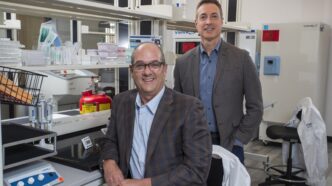CND Life Sciences has secured $13.5 million in Series A funding to expand its efforts in neurodiagnostics. The Arizona-based startup continues to scale its Syn-One Test®, a skin biopsy tool that helps detect Parkinson’s disease and related conditions.
The latest $8.6 million Series A3 round brings new investors like Labcorp on board, alongside returning backers such as Cambrian Capital Partners, Tanis Ventures, and Lupo Labs. MBX Capital and Vilas Ventures also joined. The fresh capital will fuel further development of the Syn-One platform and expand access across clinical and research settings.
The Syn-One Test® uses skin samples to detect abnormal alpha-synuclein protein—an early biomarker for diseases like Parkinson’s, dementia with Lewy bodies (DLB), and multiple system atrophy. Since its 2019 launch, over 3,000 clinicians have used it to test more than 35,000 patients.
A 2024 study published in JAMA showed the Syn-One Test had a 95.5% sensitivity rate. This high accuracy supports its growing role in diagnosing synuclein-related disorders early and reliably.
CND’s proprietary platform, NerValence™, uses AI to analyze how much abnormal synuclein is present in nerve fibers. This technology is already supporting pharmaceutical trials that measure how well new drugs target these harmful proteins.
Dr. Christopher Gibbons, CND’s chief scientific officer, said the lack of objective measures has long held back progress in treating neurodegenerative disease. But now, doctors can make more accurate diagnoses and monitor how fast conditions progress using reproducible data. This approach improves both patient care and clinical research.
Labcorp’s involvement further boosts the company’s momentum. “We’re excited to back CND’s vision,” said Megann Vaughn Watters, VP of New Ventures at Labcorp. “The Syn-One Test gives doctors actionable insights and helps close care gaps in neurology.”
With this new funding, CND plans to increase clinical adoption and support more drug trials. The company is positioning itself as a leader in precision diagnostics for Parkinson’s and other synucleinopathies.













